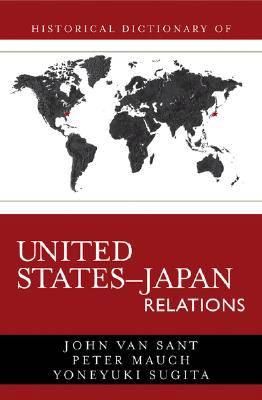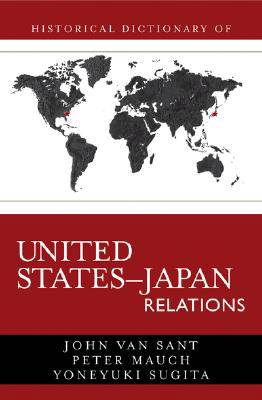
- Afhalen na 1 uur in een winkel met voorraad
- Gratis thuislevering in België vanaf € 30
- Ruim aanbod met 7 miljoen producten
- Afhalen na 1 uur in een winkel met voorraad
- Gratis thuislevering in België vanaf € 30
- Ruim aanbod met 7 miljoen producten
Zoeken
€ 177,45
+ 354 punten
Omschrijving
The most important bilateral relationship in Asia since the end of World War II is assuredly between the United States and Japan. Despite the geographical and cultural differences between these two nations, as well as the bitterness leftover from the war, an amicable and prosperous relationship has developed between the two countries boasting the world's largest economies. As the 21st century progresses, the continuing goodwill between the U.S. and Japan is of the utmost importance, as the peace and stability of the Asia-Pacific depends on their cooperation and efforts to contain destabilizing factors in the area. The Historical Dictionary of United States-Japan Relations traces this one hundred and fifty year relationship through a chronology, an introduction, appendixes, a bibliography, and cross-referenced dictionary entries on key persons, places, events, institutions, and organizations. Covering everything from Walt Whitman's poem, A Broadway Pageant, commemorating the visit of the Shogun's Embassy to the U.S. in 1860, to zaibatsu, this ready reference is an excellent starting point for the study of Japan's dealings with the U.S.
Specificaties
Betrokkenen
- Auteur(s):
- Uitgeverij:
Inhoud
- Aantal bladzijden:
- 344
- Taal:
- Engels
- Reeks:
- Reeksnummer:
- nr. 4
Eigenschappen
- Productcode (EAN):
- 9780810856080
- Verschijningsdatum:
- 29/01/2007
- Uitvoering:
- Hardcover
- Formaat:
- Genaaid
- Afmetingen:
- 150 mm x 221 mm
- Gewicht:
- 598 g

Alleen bij Standaard Boekhandel
+ 354 punten op je klantenkaart van Standaard Boekhandel
Beoordelingen
We publiceren alleen reviews die voldoen aan de voorwaarden voor reviews. Bekijk onze voorwaarden voor reviews.











